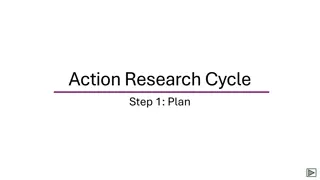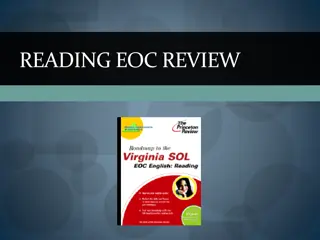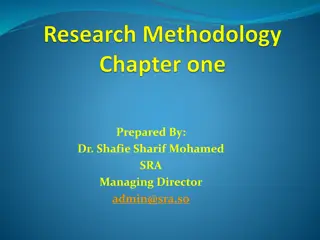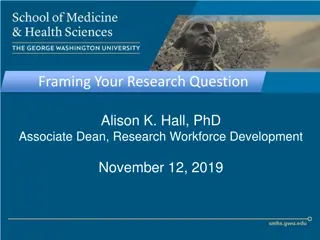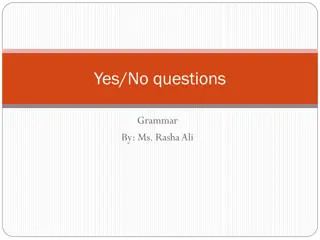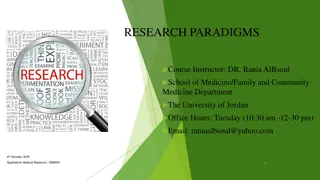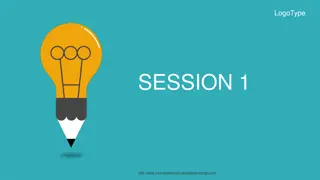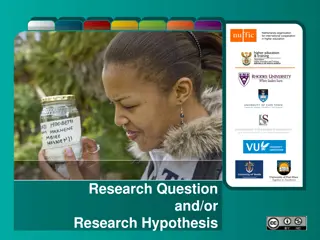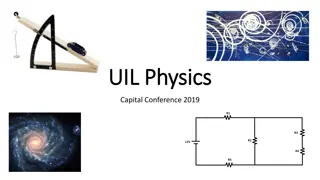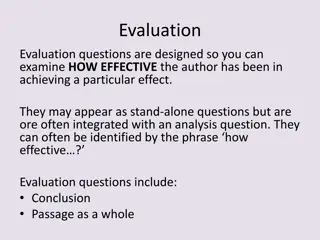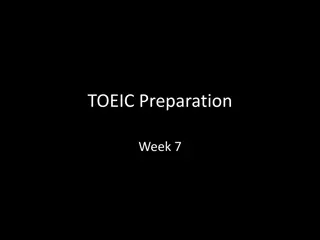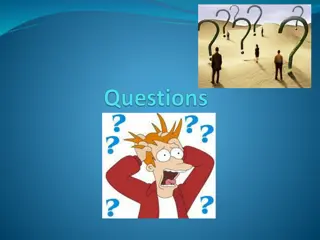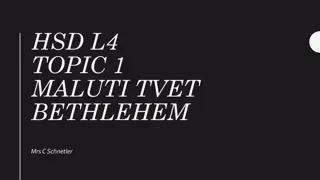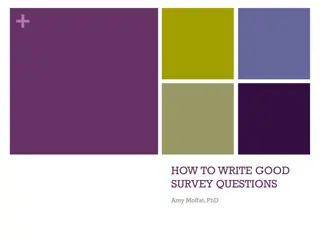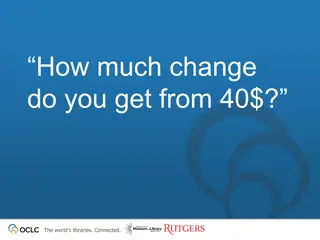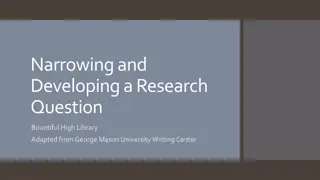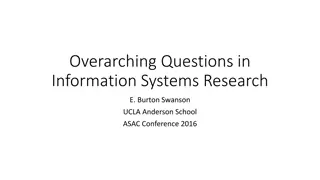
Effective Education Research Question Types
Learn about different types of research questions in education, including factor isolating, factor relating, and situation relating questions. Explore examples and understand how each type contributes to educational planning and decision-making.
Uploaded on | 0 Views
Download Presentation

Please find below an Image/Link to download the presentation.
The content on the website is provided AS IS for your information and personal use only. It may not be sold, licensed, or shared on other websites without obtaining consent from the author. If you encounter any issues during the download, it is possible that the publisher has removed the file from their server.
You are allowed to download the files provided on this website for personal or commercial use, subject to the condition that they are used lawfully. All files are the property of their respective owners.
The content on the website is provided AS IS for your information and personal use only. It may not be sold, licensed, or shared on other websites without obtaining consent from the author.
E N D
Presentation Transcript
NON-RESEARCHABLE QUESTIONS Non-researchable questions are questions of value and are answerable by YES or NO Examples: 1. Is there an a need for the teachers to take Master s Degree? 2. Do the Philippines need an additional 2 more years as Basic Education requirement? 3. Are the factors like difficulty in the course subject and teachers competency helpful to address the need for educational planning?
RESEARCHABLE QUESTIONS Researchable questions are questions of value, opinions, or policy. The 5Wh and how question words are significantly contributing to this. (Cristobal, 2017) These questions are divided into four (4) research questions types. 1. Factor Isolating 2. Factor Relating 3. Situation Relating 4. Situation - Producing
FACTOR ISOLATING QUESTIONS Factor Isolating questions are also called factor naming questions. They isolate, categorize, describe, or name factors and situations. (What is this?) Example: 1. What is the level of description of the study habits of senior high school students in terms of: 1.1 review time; 1.2 place of review; and 1.3 techniques in studying?
FACTOR ISOLATING QUESTIONS Example: 2. What is the level of school effectiveness in terms of: 2.1 teacher s performance; 2.2 school performance; a. drop-out rate, b. completion rate, c. survival rate, d. achievement rate, and e. awards received by students?
FACTOR RELATING QUESTIONS In factor relating questions, these determine the relationships among factors identified in the problem. These are usually the questions raise for non- experimental study. (What is happening here?) Example: 1. What is the relationship of the level of performance of the college instructors to the OJT performance of the HRM students of the Tacloban School of Business?
FACTOR RELATING QUESTIONS Example: 2. What relationships are observed between and among the following variables? a. intrapersonal competency; b. interpersonal competency; and c. school effectiveness? 3. How does the study habits influence the achievement level of the Grade 11 students in their major subjects?
SITUATION RELATING QUESTIONS In situation relating questions, the hypothesis testing or experimental designs are usually applied. The researchers manipulate the variables to find out what will happen. (What will happen if .?) Example: 1. What are the effects of the traditional methods of teaching on the level of performance of the ABM students?
SITUATION RELATING QUESTIONS Example: 2. How significantly different is the performance of the morning call center agents to that of the evening call center agents? 3. What is the most effective food supplements to be given to increase the productivity of tilapia farming? 4. How does the management procedures applied by the store managers affect the level of customer satisfaction as experienced by selected regular clients of Jollibee stores in the Province of Leyte?
SITUATION PRODUCING QUESTIONS These questions require a proposed output. It suggests developmental and action plans where the researchers have to establish areas for proposals of plans to achieve the goals to solve problems. (How can I make it happen?) Example: 1. What policy is to be formulated to manage the effective involvement of high school students in social media? 2. How can counseling services be organized to promote family bonding among parents and elementary school pupils?
SITUATION PRODUCING QUESTIONS Example: 3. Based on the findings, what human relation intervention program can be adopted to enhance or improve school effectiveness? 4. What developmental plan is to be implemented to improve the teacher parent relationship in the senior high school of the University of Cebu Banilad Campus.
REFERENCE Cristobal, A. & Cristobal, M. C. (2017). Practical Research 2 for Senior High School. Quezon City: C & E Publishing, Inc.



